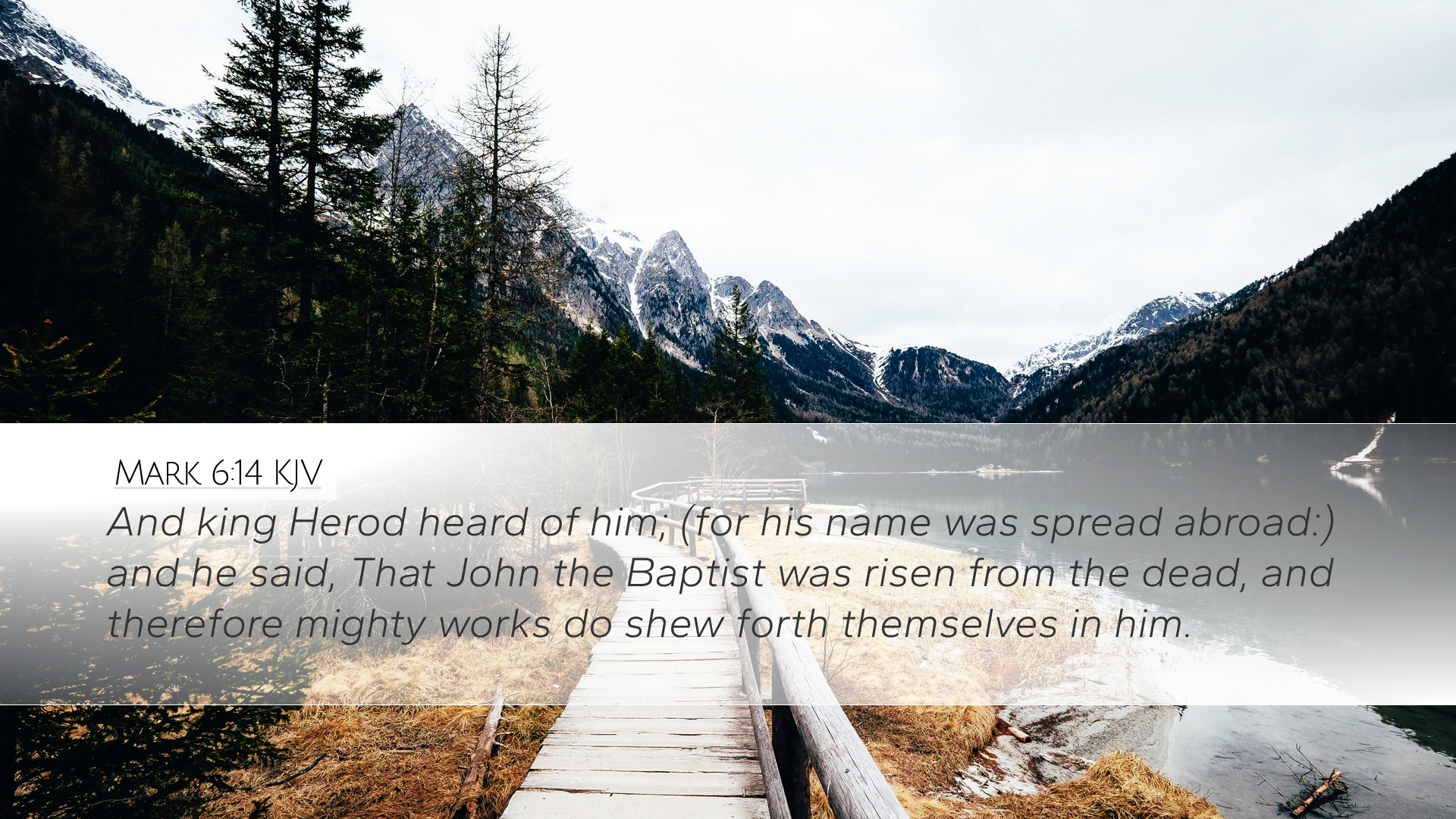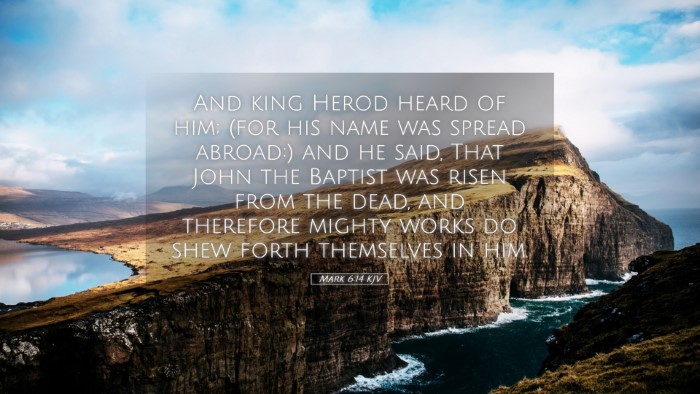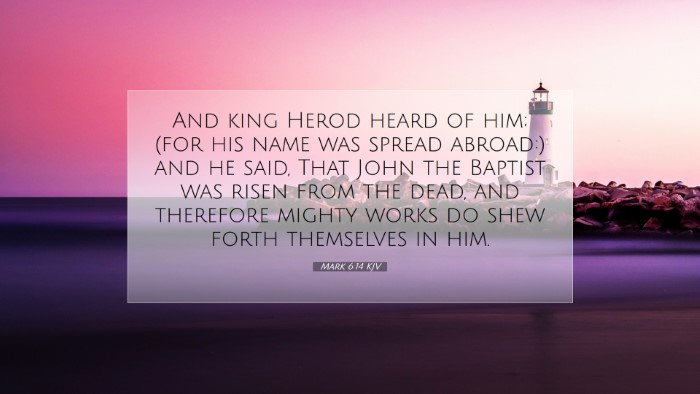Commentary on Mark 6:14
Verse: Mark 6:14 - "And king Herod heard of him; for his name was spread abroad: and he said, That John the Baptist was risen from the dead, and therefore mighty works do shew forth themselves in him."
Introduction
This passage from Mark illustrates the continuing influence of John the Baptist even after his death. Herod’s fear and confusion regarding Jesus reflect a deeper misunderstanding of Jesus' identity and mission. In the context of this verse, we see how the impact of prophetic voices transcends their earthly presence, and the ripples of their ministry continue to affect society.
Contextual Analysis
To fully appreciate Mark 6:14, one must consider its placement within the narrative of the Gospel of Mark. This chapter narrates the mission of the Twelve and highlights the reactions of different groups to Jesus’ teachings and miracles.
- Historical Context: The mention of Herod aligns with the political sphere of the time, showcasing the tensions between political authority and prophetic ministry.
- Geographical Context: The events take place in a region where familiarity with John the Baptist's ministry was prevalent, amplifying Herod's fears regarding a resurgence of John.
- Theological Context: This encounter emphasizes the reality of resurrection and divine power, setting the stage for understanding Jesus as the Messiah.
Insights from Commentaries
Matthew Henry's Commentary
Henry notes that Herod, although a king, was deeply troubled by the fame of Jesus, mistaking Him for John the Baptist resurrected. This revelation illustrates the pervasive impact of John’s ministry; it showcases the spiritual authority John held even in death.
Henry further emphasizes that Herod’s misconceptions reveal the broader societal belief system and fear of divine retribution. Herod’s guilt over John's execution leads him to irrational conclusions, condemning himself further as he recognizes the significance of the miraculous works attributed to Jesus.
Albert Barnes' Notes on the Bible
Barnes highlights how Mark identifies Herod’s statement as an expression of his inner turmoil and guilt. It wasn’t just fear that motivated Herod; it was also the haunting realization of his actions against John. Barnes points out that Herod’s acknowledgment of Jesus’ power demonstrates a lingering respect and fear for the prophetic office. He states:
“Herod, guilty of shedding innocent blood, was now tormented by the thought that John, whom he beheaded, had returned, manifesting divine power.”
This connection elucidates the interplay between guilt, fear, and belief in the resurrection, reflecting the spiritual atmosphere of the time.
Adam Clarke's Commentary
Clarke provides a detailed exposition on the significance of Herod's remark. He argues that Herod's statement shows not only fear but also a recognition of the divine nature of Jesus’ works. Clarke articulates that:
“Herod's imagination conjured up that John was risen from the dead, which demonstrates the profound impact of John's ministry on his mind.”
Clarke further points to the deep-seated Jewish beliefs concerning resurrection, suggesting that Herod's apprehension reveals more about his own character than about Jesus' true identity.
Theological Implications
This verse carries significant theological implications regarding resurrection and divine authority. The reactions to Jesus as interpreted through Herod's lens present a portrait of misunderstanding that can often characterize human responses to the divine.
- Resurrection Concept: Herod's fear illustrates a belief in the possibility of resurrection, prompting a consideration of the essence of life, death, and what lies beyond.
- Identity of Christ: This passage calls into question how and why people perceive Jesus in various ways—often shaped by preconceived notions and past experiences.
- Role of Prophets: It reveals the enduring legacy of true prophets and their continuing influence, even after their physical departure.
Conclusion
Mark 6:14 serves as a pivotal verse that bridges the past prophetic voices with the presenting ministry of Jesus. The confusion, fear, and reverence depicted through Herod highlight the broader theme of recognition and misunderstanding in the realm of faith. The commentaries offer rich insights that underline the importance of understanding one's own spiritual standing and how it influences perception towards divine authority. For contemporary pastors, students, and theologians, this verse encourages a deeper exploration of how historical figures interact with God's unfolding narrative and invites reflection on one's own response to God's revelation in Jesus Christ.


